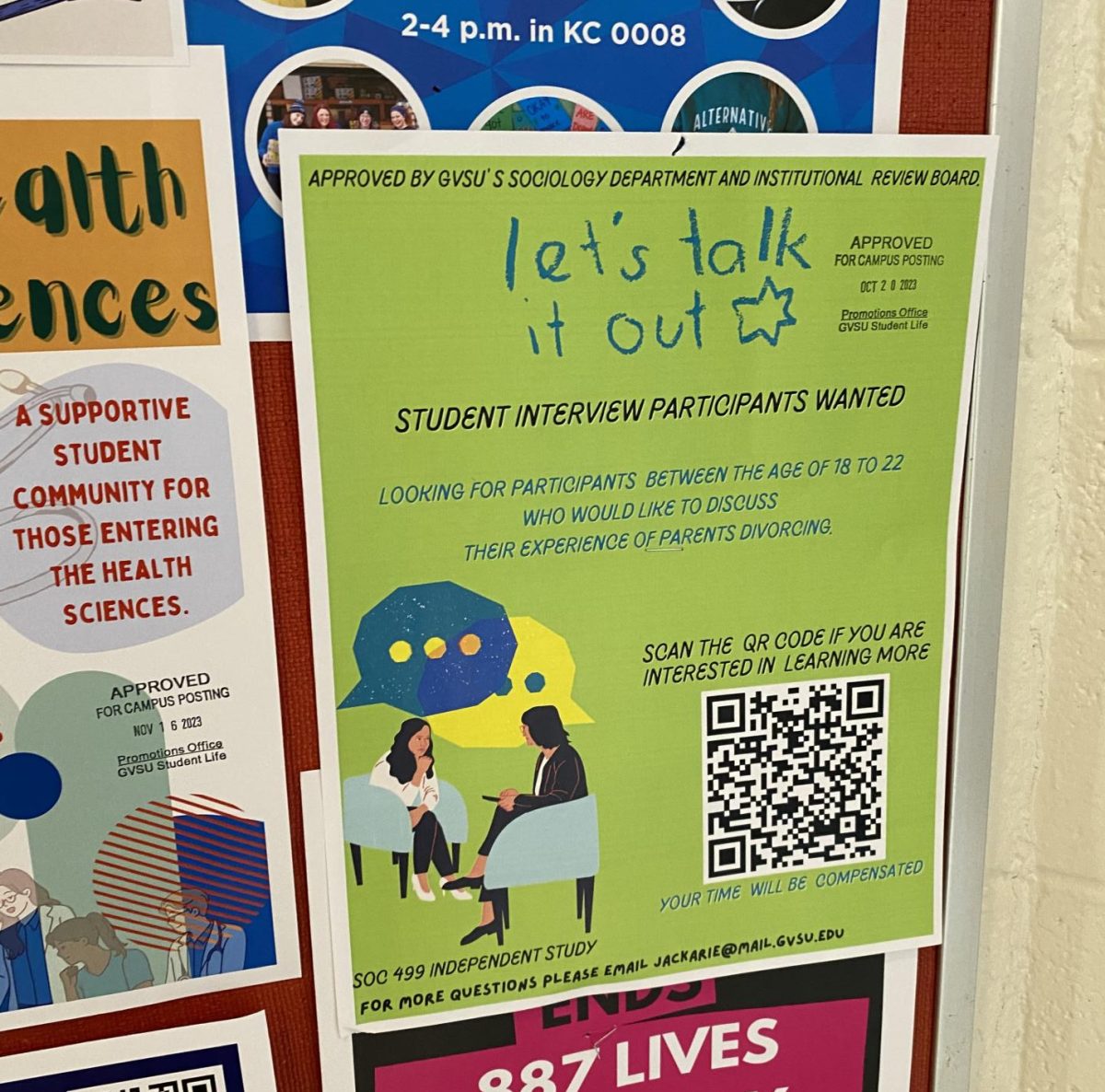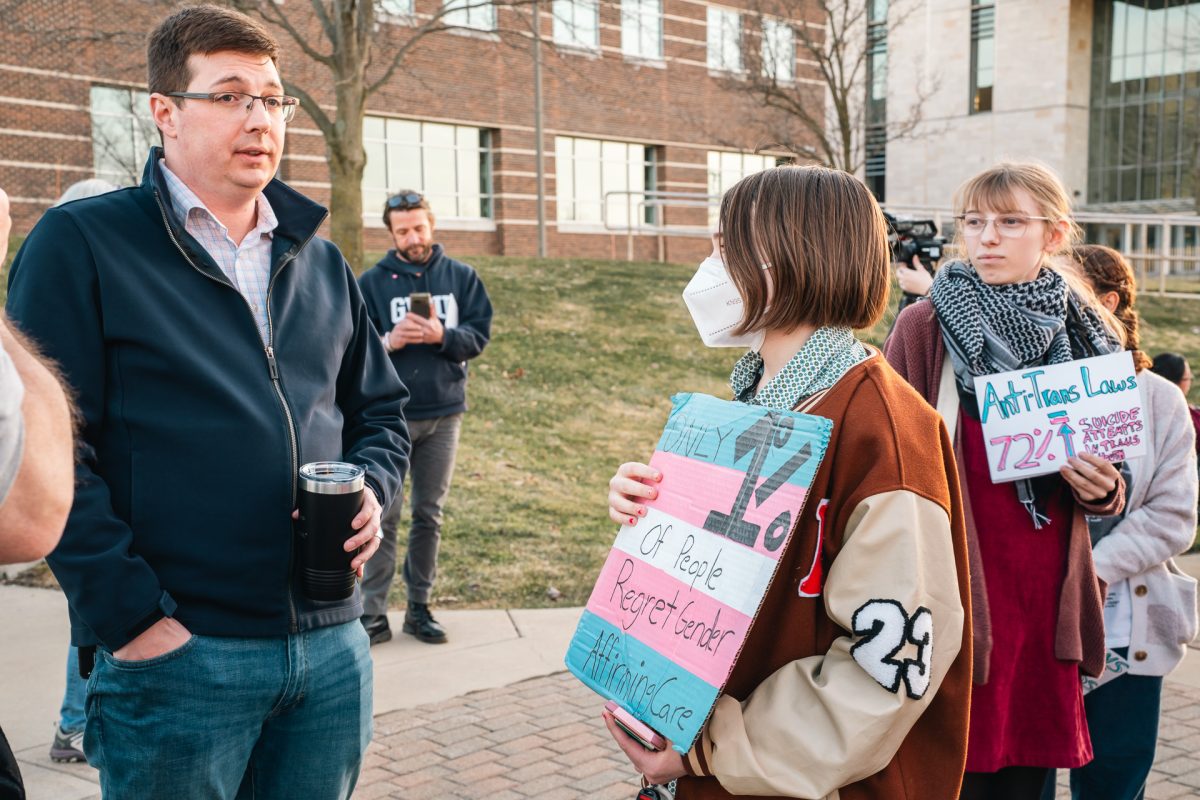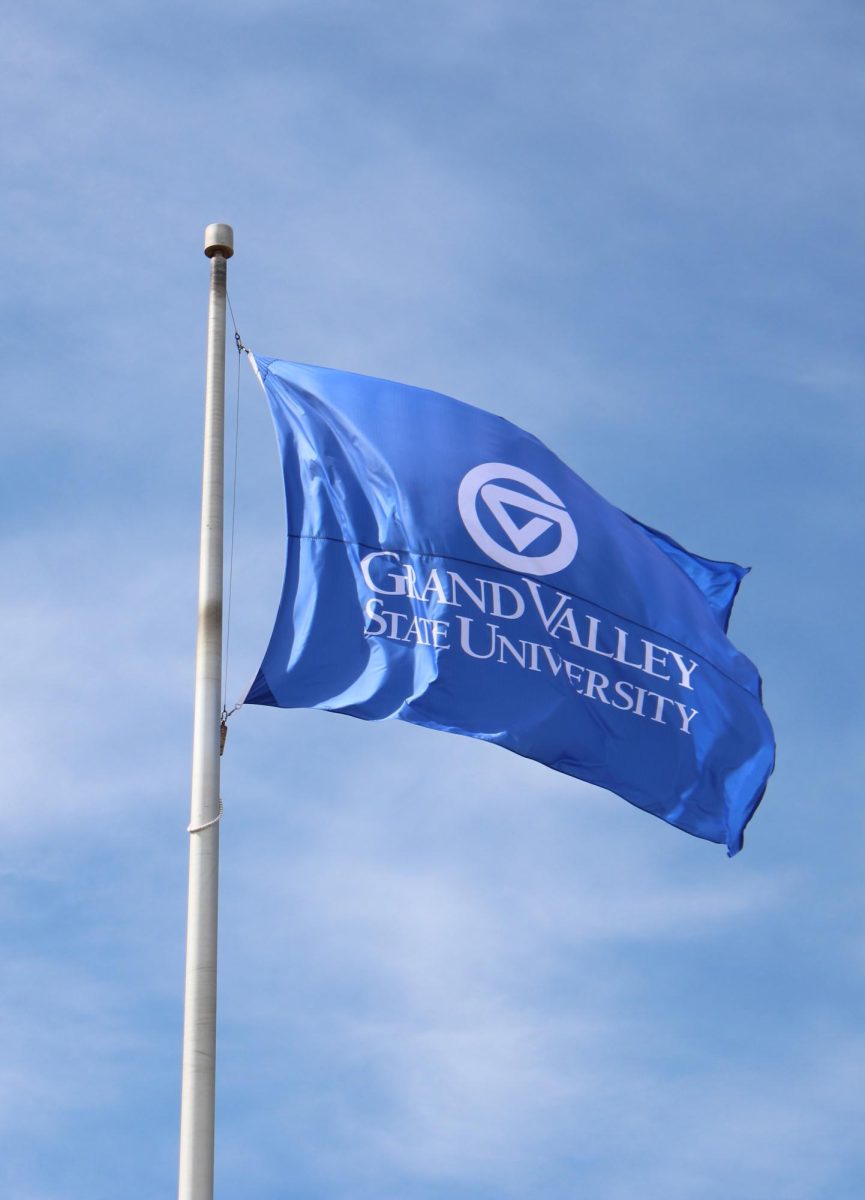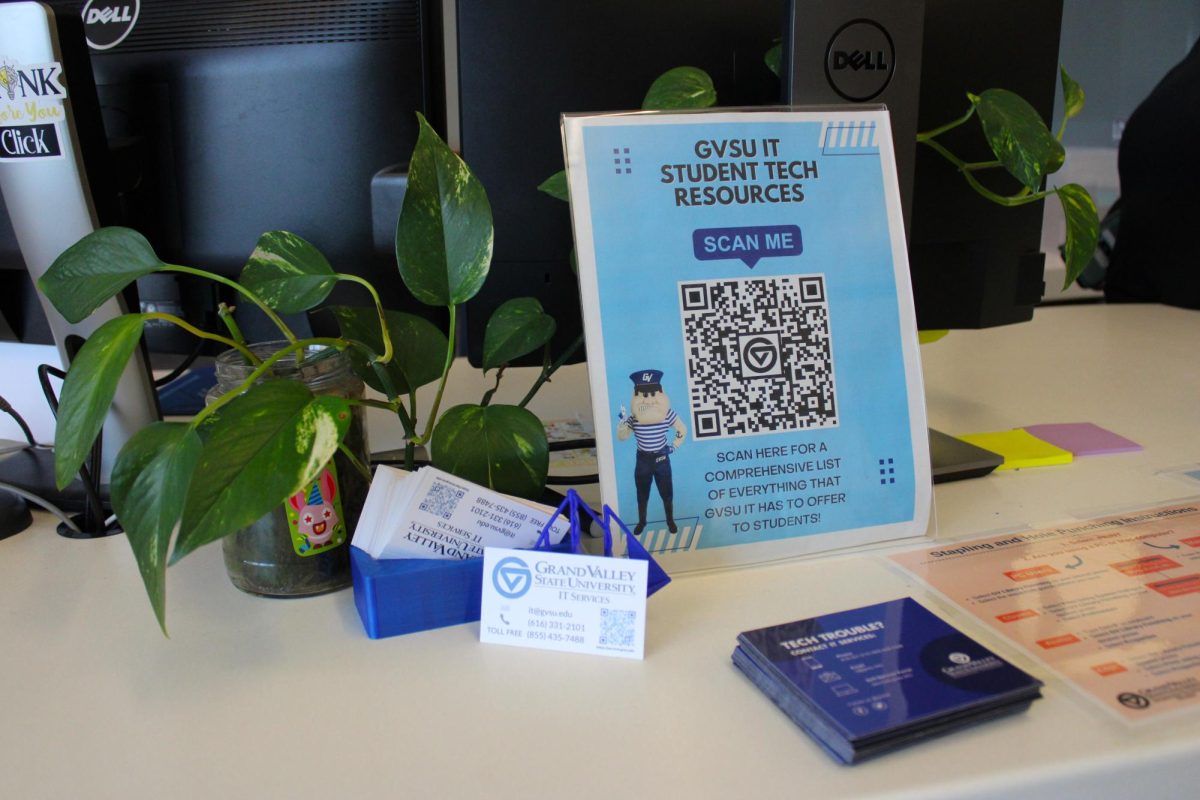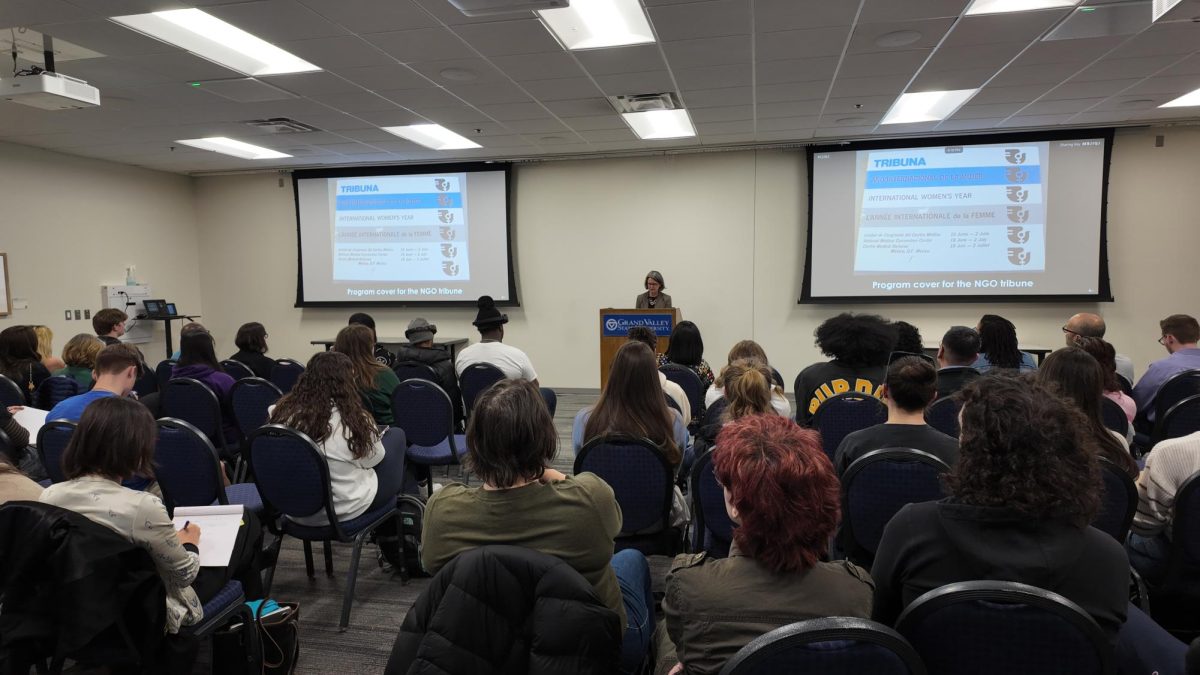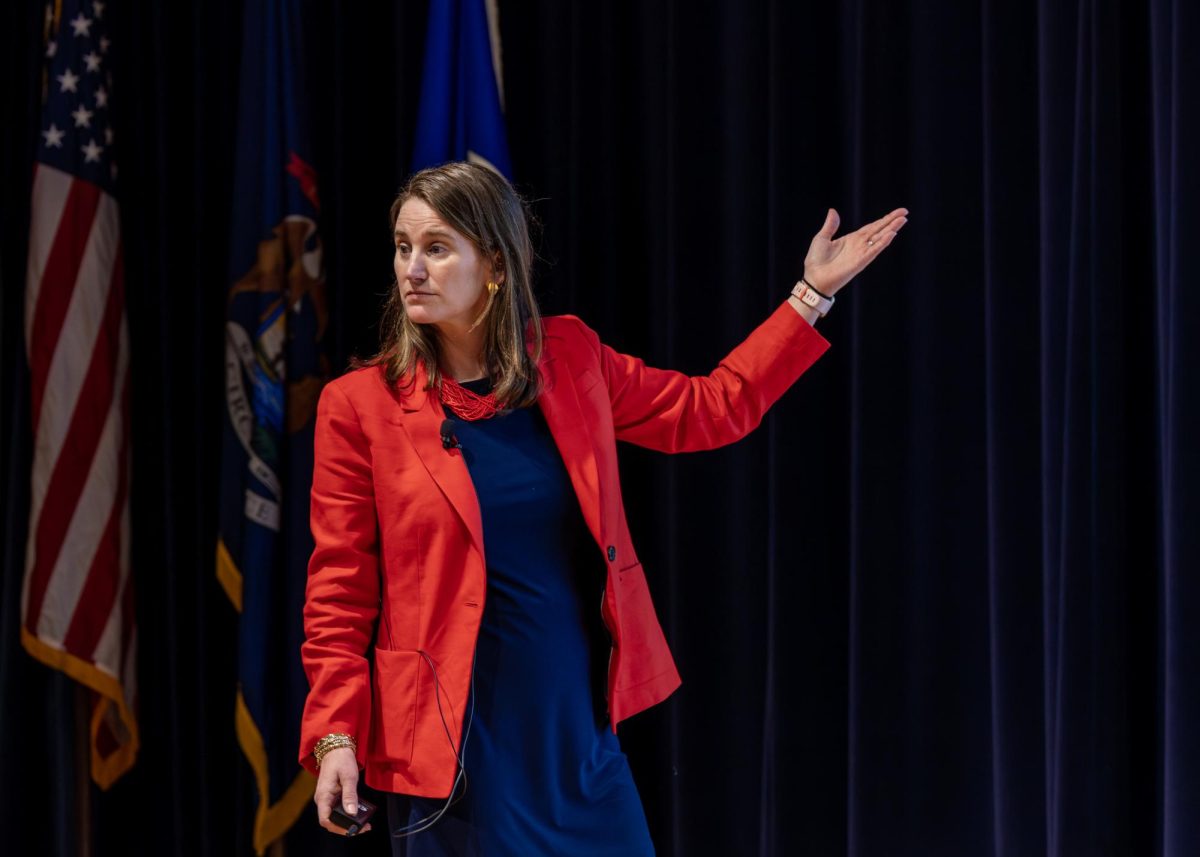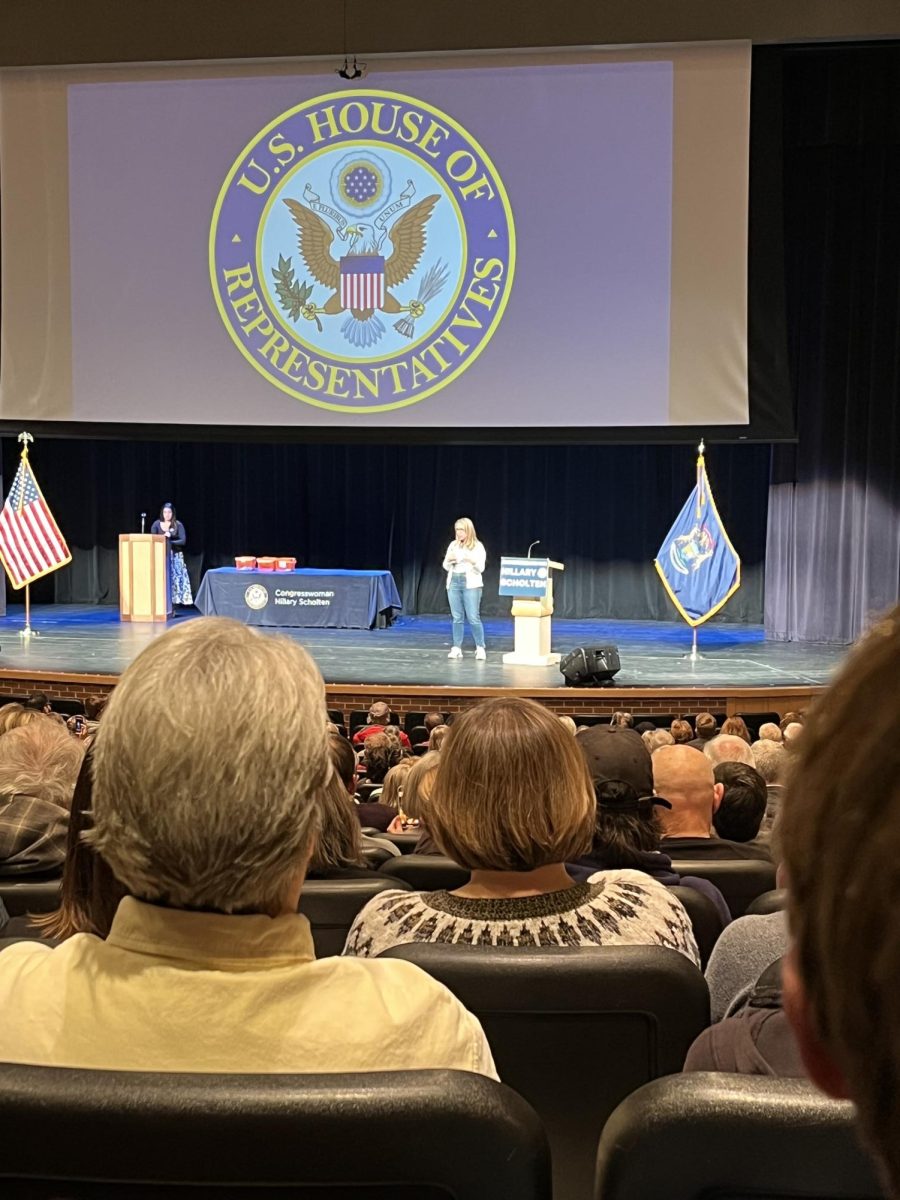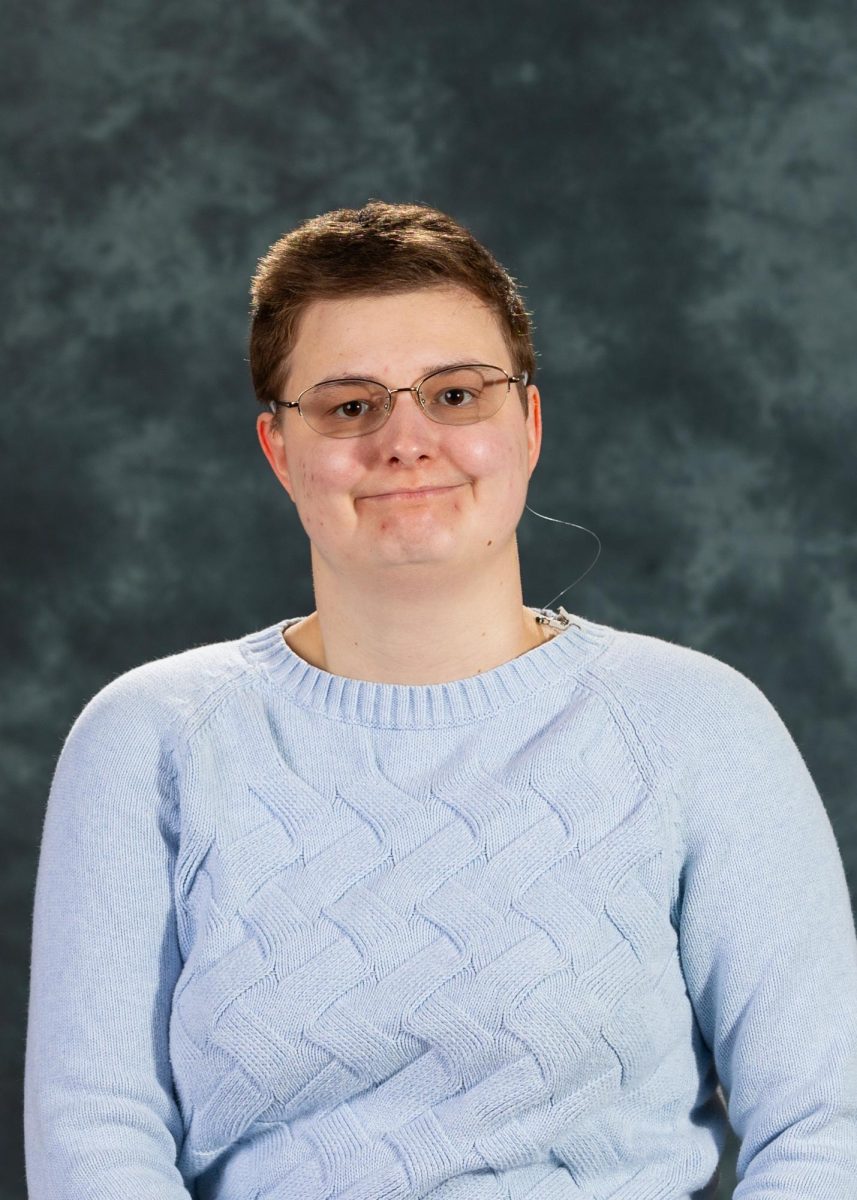Undergraduate researcher Arieal Jackson is seeking student participation for her sociology research project regarding the effects of divorce on young children. Jackson presented her findings thus far at the Michigan Sociological Association 2023 Annual Conference on Oct. 27 at Grand Valley State University.
Jackson originally developed the idea while taking part in the GVSU McNair Scholar’s Program where she demonstrated interest in how the divorce of parents affects children. She continues her work into the fall semester, where she is now completing the requirements for independent study and research credits on the subject.
Jackson’s project is being overseen by Sociology Department Faculty member Anna Hammersmith, Ph.D., who specializes in the sociology of families.
“I’m very interested in divorce. So it was a natural fit for me to sort of help steer the project, but it’s all her work, and it’s very impressive,” Hammersmith said. “We know a lot about how divorce affects kids, but a lot of that research is like 10 or 20 years old at this point. I think her research is important because we haven’t really reevaluated how divorce affects kids in this sort of 2020s era.”
Hammersmith has served as a mentor for several student researchers through her affiliation with the GVSU Center for Undergraduate Scholar Engagement. She said she enjoys assisting students with navigating all of the small considerations that go into developing a well-planned research project.
“Whenever I work with students, I see my role as helping make sure the research question makes sense for what they actually want to answer,” Hammersmith said. “This summer we mapped out (Jackson’s) whole project with all of the different variables, and then used that from a research question, and then also decided like, okay, so you have this research question, how can you realistically answer it within the timeframe that you have.”
There are several qualifying measures students must take to conduct research at GVSU besides finding a mentor and developing a thesis. In order to conduct human research, scholars must gain approval from the Institutional Review Board (IRB), which acts to ensure the basic rights and welfare of participants.
Jackson’s study required her to draft a research proposal indicating the participants she would be seeking, the questions she would be asking, and how she would support them throughout the study. Additionally, she had to disclose any compensation participants would receive for partaking in the study.
IRB approval often results in several rounds of submissions, making it a time-consuming process. Hammersmith mentions it’s not uncommon for the board to ask for additional information or reformatting certain information necessitating resubmission of the proposal.
“(Jackson) did a lot at work, but part of my role is first answering their questions but also championing her by saying things like, ‘This is totally normal to have this bounce back a few times. You’re learning how to do this. It’s your first time like it’s not going to be you submit it and they approve it right away,’” Hammersmith said.
Jackson received IRB approval after one month of discussion and suggestions from the board. She began recruiting and interviewing participants at the beginning of the fall semester.
Jackson is still actively seeking students between the ages of 18-22 who have experienced the divorce of a parent before the age of 16 to participate in her project. Those interested in participating will be asked to partake in a 20-45 minute interview and will be compensated with a gift card. Interested students can sign up for consideration in the study by filling out a brief survey.





